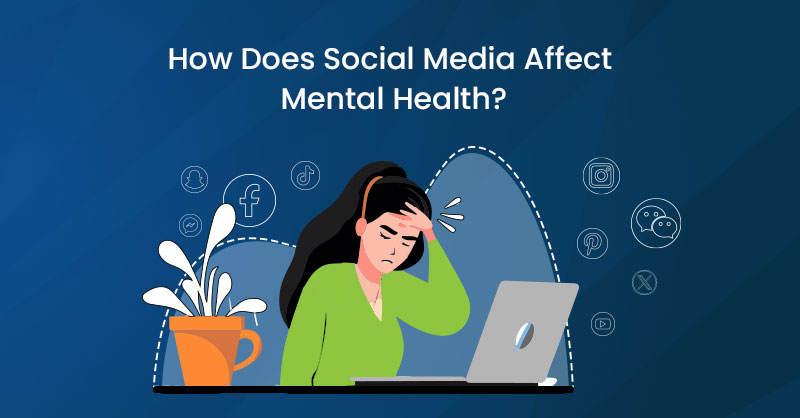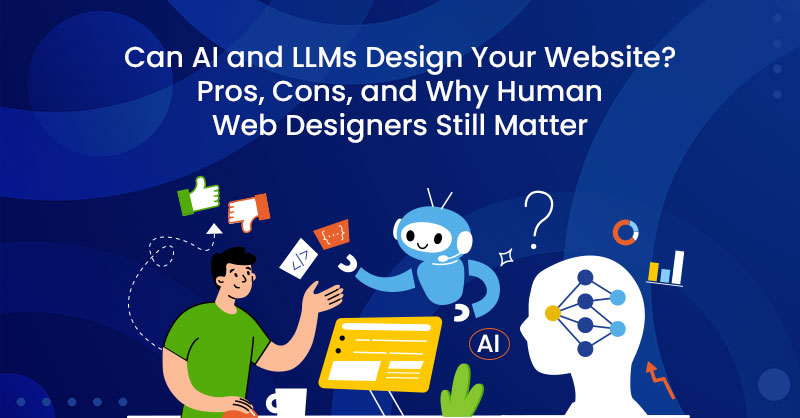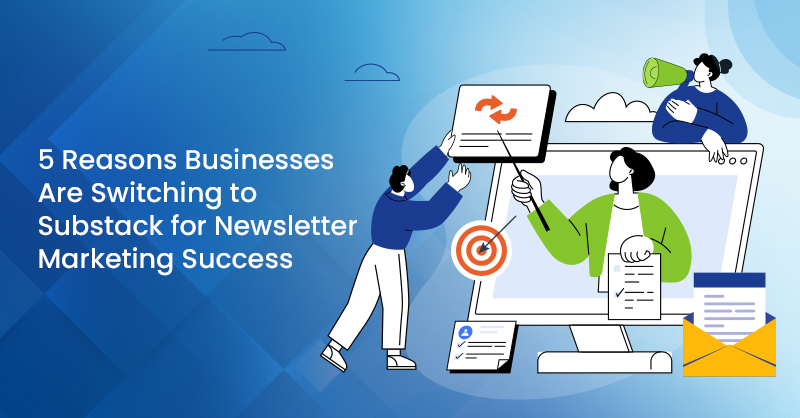Social media…what do we know about it?
Let’s start off with the obvious: in some form or another, people utilize social media every single day. Either we hear about it, see it, speak about it, or use it to share content with others. It can't be denied that the modern world is consumed by social media.
Now, let's talk about the basics. What is social media? Social media refers to the means of interactions among people in which they create, share, and exchange information and ideas in virtual communities and networks. Some of the most influential social media platforms are Facebook, Twitter (now X), Instagram, LinkedIn and YouTube.
Without a doubt, anyone who has access to the internet and a phone uses social media. So, let’s think about it now more realistically: how does social media affect our mental health?
In this blog, we will be discussing the impact social media has on mental health and how we can create a healthy balance to make a positive difference in our lives. To learn more, keep reading ahead.
The Pros and Cons of Social Media in Mental Health
The Pros
Mental health is a hot topic in today's society. Social media does have a part to play in this.
One of the pros of social media is how it “builds a community.” While on social media, you can join groups with like-minded individuals to learn, express, and share your thoughts. On the subject, the Idea Hub shares the following:
“Social media has become a great way to stay connected with friends and family and see what’s going on in their daily lives. Aside from maintaining relationships with loved ones, the creation of communities on these platforms has enabled users to find like-minded people to share their passions and views with.”
Another positive effect of using social media is that it has been influential in creating awareness about mental health. Celebrities, athletes, and individuals are expressing themselves openly via social media platforms. It is a powerful yet passionate way for high-profile individuals to express themselves!

Source: Shutterstock
The Cons
One of the negative mental health effects of social media is that it can induce depression and anxiety. Social media impacts the mental health of young people in particular and their self-esteem. Often, the youth compare themselves to online influencers or celebrities and feel unfulfilled when they can’t relate to their picture-perfect lifestyle. This feeling of insecurity leads individuals to become depressed or develop anxiety.
Idea Hub shares that Alexey Makarin, an assistant professor at MIT Sloan, and his colleagues found a connection between Facebook users and mental health deterioration among college students. According to the study, Facebook usage among college students led to an increase in severe depression by 7% and anxiety disorder by 20%.
Secondly, another con of social media is how much time it takes us away from reality. Society, as a whole, spends a vast amount of time utilizing major social media platforms. In fact, Agnes Zsila and Marc Eric S Reyes of BMC Psychology reveal that people spend 2.3 hours daily on social media. In 2022, YouTube, TikTok, Instagram, and Snapchat were very popular among youth, with one-third admitting they spend too much time on these platforms.
The third and final con is that cyberbullying often manifests on social media platforms. In modern terms, “trolling” is a big part of social media. The ability to remain anonymous has allowed suspicious individuals to act disrespectfully without any fear of facing the consequences. An example of this would be spam accounts harassing an individual with harmful remarks about how they portray themselves online.
FOMO (Fear of Missing Out) and Its Influence on Mental Well-being
Now, we are going to look into the fear of missing out–or FOMO–and its influence on mental well-being.
Everyone, at some point, has felt that they missed out on something significant in their life. However, the way social media makes individuals feel about missing out on an event can create an additional layer of FOMO. It happens when a person feels that others are having fun while they are not there.
With FOMO comes the comparison game, where a person will measure the quality of their lives to the curated lives of people on social media. EFR states in their latest article that:
“Social media can lead you to measure your real, nitty-gritty life against others’ highlight reels. It’s a deceptively false comparison that takes a toll on your well-being. Because FOMO isn’t just the thought you could be doing better things when you watch what others are doing on social media; it’s an ever-present fear that you are missing out on something fundamentally important that others are experiencing.”
The Role of Social Media in Stress and Sleep Disturbances
Let’s discuss the role social media plays in stress and sleep disturbances. It is common for us to bring the phone to bed; so common that people do this without even realizing it anymore!
In regards to the connection between social media and sleep, Sleepstation explains in its blog: “Polls have shown that browsing social media is now one of the most common pre-sleep activities, between going to bed and falling sleep. While it might feel relaxing to lie in bed and check a newsfeed, the reality is that this constant connectivity can have major negative effects on our sleep.”
Think about the many instances in one night where an individual may need to scroll through their Facebook, X, or Instagram. Sleep Station reiterates, “When we finally put down our phones, it also takes us longer to fall asleep, the quality of sleep is reduced and you wake up feeling sleepy and unrefreshed.”
We tend to forget that in order for us to sleep properly, we need to wind down more naturally. So, what can we do to combat these negative impacts?
First, aim to wind down earlier than expected. For most of us, using social media tends to be a reactive event that happens when we hear a noise or feel a vibration, reminding us to look at our phones. Second, remove your phone entirely from your reach. Third, seek professional help and guidance on how to limit screen time. Constant exposure to social media can create addictive patterns that some people can naturally overcome while others may not be able to.

Source: Shutterstock
In Conclusion
Overall, social media is not going anywhere for the foreseeable future. As we learn and adapt to new trends, social media is playing a more prominent role in our daily lives. At some point, we must realize that too much (like most other habits in life) is unhealthy.
The beginning of this article covered the pros and cons of social media. Then, we looked at other ways social media can impact our mental health after constant usage. From causing depression and anxiety to FOMO. Using social media before bed can also be detrimental to our sleep cycle, leading us to wake up feeling groggy or unproductive.
Even though there are many cons to social media, we shouldn’t let that take away from its several benefits. As mentioned earlier, social media creates a space for online communities to thrive, provides a platform to raise awareness on important issues, and so forth. Although, we can only enjoy the many advantages social media has to offer when we take regular breaks from it and prioritize our mental health.
So, if you haven’t already done so, put down your phone and go see the world for what it really is! The world is beautiful, so look up from your screen–you might just miss something remarkable if you don’t.
If you’re interested in dipping your toes into social media marketing and need some expert assistance, say no more! At TechWyse Internet Marketing, we specialize in Social Media Management and are excited to bring you more followers who will engage with your social media platforms. To book an appointment, call (416)-410-7090 or contact us here.





